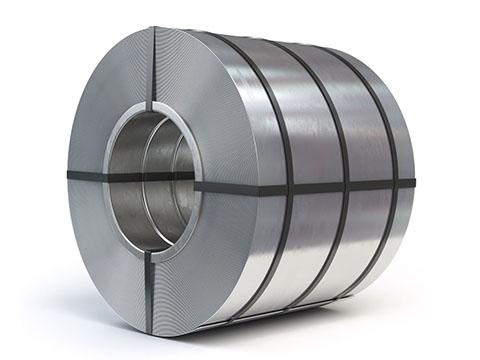10F, Building B, Erqi Center, Erqi District,
Zhengzhou City,
Henan Province, China
Wit:+86 15138685087
(WhatsApp/Wechat)

10F, Building B, Erqi Center, Erqi District,
Zhengzhou City,
Henan Province, China
Wit:+86 15138685087
(WhatsApp/Wechat)
316 series stainless steel is one of the most widely used steel. The most popular types include SS316 and SS316L, which are molybdenum-containing austenitic stainless steel. Both of them feature super resistance to high temperature and corrosion, ultra-high strength, and excellent workability. But what is the difference between SS316 and SS316L?
The molybdenum content in 316L stainless steel is slightly higher than that of 316 stainless steel. Due to the molybdenum in the steel, the overall performance of the 316 series is better than that of 310 and 304 stainless steel. While the main difference between SS316 and SS316L is the carbon content. The max carbon content of SS316 is 0.08%, while that of 316L is 0.03%. L here stands for low carbon. Below let’s review the chemical composition differences.
| Chemical Composition | SS316 | SS316L |
| C (Carbon) | C≤0.08 | C≤0.03 |
| Yes (Silicon) | Si≤1.00 | Si≤1.00 |
| Mn (Manganese) | Mn≤2.00 | Mn≤2.00 |
| P (Phosphorus) | P≤0.035 | P≤0.035 |
| S (Sulphur) | S≤0.03 | S≤0.03 |
| Ni (Nickel) | 10.0-14.0 | ASTM: 10.0-14.0 (JIS: 12-15) |
| Cr (Chromium) | 16.0-18.5 | 16.0-18.0 |
| Mo (Molybdenum) | 2.0-3.0 | 2.0-3.0 |

SS Coil
Due to the difference in carbon content, there are also some differences between 316 and 316L in performance. The higher the carbon content, the easier it is to cause intergranular corrosion, such as during welding. Also, higher carbon content will increase the tensile and yield strength. Therefore, SS316 will be harder than SS316L. But its welding performance and workability are not as good as that of 316L. Below are the differences between their mechanical properties.
| Item | SS316 | SS316L |
| Tensile strength (Mpa) | 515 MIN | 485 MIN |
| Yield strength (Mpa) | 310 MIN | 170 MIN |
| Elongation(%) | 30 MIN | 30 MIN |
| Area reduction(%) | 40 MIN | 40 MIN |
| Density | 8.03 g/cm 3 | 8.03 g/cm 3 |
| Melting point | 1375 ~ 1450 ℃ | 1375 ~ 1450 ℃ |
| Rockwell Hardness(HRB) | ≤95 | ≤95 |
| Brinell Hardness (HB) | ≤217 | ≤217 |
The data above shows that 316L is better for the applications where the stainless steel will be welded. If there is a higher requirement for the strength of stainless steel, SS316 will be more suitable.
There are different standards for stainless steel in different areas. Here is the codes for SS316L in China, Japan, US and EU.
| China | Japan (JIS) | US(ASTM) | US(UNS ) | European Union |
| 00Cr17Ni14Mo2 (old) /022Cr17Ni12Mo2 (new) | SUS316L | 316L | S31603 | X2CrNiMo17-12-2 (1.4404) |
Note: According to the American standard, the Ni content of 316L is 10-14%, while the Ni content is 12-15% on the basis of the Japanese standard. While the 2% difference in Ni content has a quite huge difference in price. When purchasing, please confirm the standards clearly.
Actually, the price difference between SS316 and SS316L is very slight. Their cost is approximately the same.
The low carbon content of 316L stainless steel makes it difficult to form chromium carbide during welding, which can reduce the corrosion of the welded part. Hence, SS 316L has great weldability and excellent resistance to intergranular corrosion.
The applications of SS316 and SS316L are very similar. They have excellent corrosion resistance and heat resistance. So they are often used in boilers, auto parts, medical appliances, building materials, heat exchangers, pulp and paper making equipment, film processing equipment, pipes, bracelets and cases for high-end watches, dyeing equipment, chemical industry, food industry, bolts, nuts, marine equipment, etc. However, 316 is better in construction and infrastructure because of its higher strength. While 316L is popular for photography equipment and marine facilities.
SS316 and SS316L are very similar in features and applications. Which one is better? It depends. If stainless steel needs to be welded, 316L is a better choice. If you have a higher requirement for strength, then choose SS316. But SS316L is more popular on the market. For one reason, the current refining technology is very mature, the carbon content is well controlled. For the other reason, there is a large demand for 316L. While if you want a cheaper solution, the SS304 series will be a great choice.
However, SS304 does not resist pitting corrosion. Pitting corrosion will cause leakage, which will cause safety accidents in the chemical industry. Therefore, it is recommended to check the chemical composition during purchase. Wanzhi Steel promises to supply according to the contract. Besides, third-party quality inspection is acceptable. Welcome to contact us for more details!





